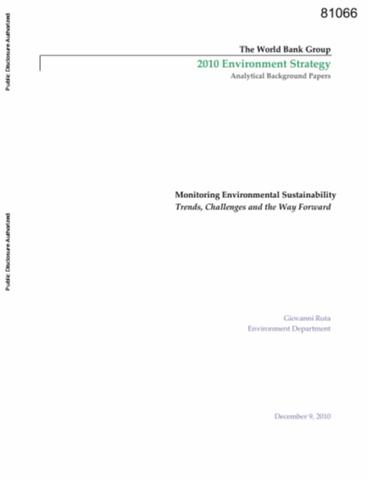Resource information
This report presents a concise review of the major environmental and natural resources issues at the global and national level over the coming two decades. The environmental issues reviewed include air pollution and deterioration of air quality, greenhouse gas emissions and climate change, water quality, scarcity and access, land and soil degradation, deforestation and forest degradation, natural disaster, loss of biodiversity and protected areas, and governance and institutions for environmental and natural resource management. Besides providing an environment outlook, the report tackles the issue of monitoring also from the supply side. It identifies the relevant data and indicator sets available at the global level and country level to capture the global and locally relevant environmental issues with the underlying objective of pinpointing at data gaps. It concludes with a set of recommendations for moving forward on the monitoring agenda. Overall, the threats from climate change caused by Green House Gas (GHG) emissions, biodiversity loss, water pollution and scarcity as well as pressure on land as well as worsening ocean's state and biodiversity have to be taken under close observation in the period over the next 20 years. The environment challenges that the world faces are not trivial and some of them require immediate action. Action, in turn, requires reliable and accurate information. The second part of the report looks at information from the supply side. It identifies the relevant data and indicator sets available at the global level and country level to capture the global and locally relevant environmental issues with the underlying objective of informing and advising decision making and to identify the data gaps.


